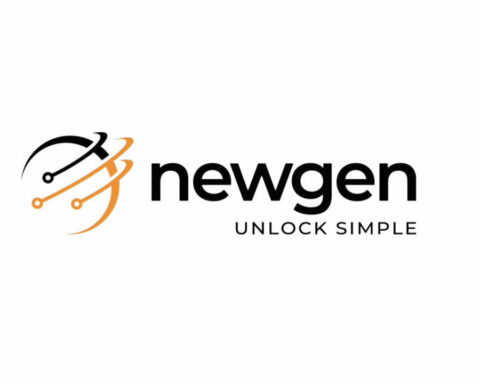Below is the snippet from a recent interaction between team IT-Voice and Varun Goswami. Varun is Global Head, New Products COE at Newgen Software.
Prateek: How can technology improve the data management systems and processes in the insurance sector?
Varun Goswami: Insurance companies generate a huge volume of data in the form of policies, proposals, notices, forms, claims, portfolio statements, renewals, bills, and more. Moreover, reliance on manual and paper-based insurance processes results in cost and operational inefficiencies.
Organizations need to embrace comprehensive digital transformation platforms that offer content management capabilities for end-to-end document digitization across processes and functions. The platform should allow insurance organizations to leverage new-age technologies like AI/ML-based analytics to draw insights from data for contextual customer engagement and intelligent decision-making. The platform should also allow businesses to automate the toughest of processes rapidly, build customer-centric applications, access content anywhere, and drive contextual customer interactions.
Prateek: What is the scope of low code platforms in India? How can SMEs benefit from the technology?
Varun Goswami: Today low code is at the forefront of enterprise application development, and an increasing number of organizations are opting for low code platforms. This is corroborated by a Gartner study that suggests that by 2024, low code application development will be responsible for more than 65 percent of application development activity.
Post-pandemic, enterprises have a sense of urgency to quickly digitize their mission-critical processes to ensure business continuity and undisrupted services. Organizations need to respond to changing business needs by launching, updating, and evolving their customer-facing applications in the shortest possible time. And low code applications help businesses achieve that by-
- Delivering enterprise-grade applications rapidly
- Catering to rising digitization demands
- Responding to unforeseen scenarios and problems
Low code platforms can confer a tremendous competitive advantage to SMEs. A low code platform speeds up the time to market without investing in additional resources and IT infrastructure. It empowers IT, professionals, to rapidly deliver mission-critical applications while ensuring compliance with regulatory requirements. Also, it offers scalability, allowing SMEs to grow and evolve per changing business needs.
Prateek: Given the current scenario, how can artificial intelligence transform the digitalization process in the country?
A McKinsey report suggests that 85% of companies have accelerated digitization post-pandemic, and 67% of them have specifically amped up artificial intelligence (AI) automation. Organizations are embracing different AI automation technologies to improve their business outcomes. For instance, using robotic process automation, enterprises are automating common digital and physical tasks (particularly back-office operations and financial activities).
AI-enabled enterprises are changing the way we think about everyday things by making them simpler and more effective. Use cases span industries—from financial services, insurance, manufacturing, healthcare, education, retail, and more. It is revolutionizing the digital experience at both ends—for employees as well as customers by:
- Enabling rapid, end-to-end process automation
- Making processes leaner and faster
- Enabling shorter development cycles for quicker ROI
- Extending process component reusability, which keeps cost under control
- Ensuring adherence to compliances
- Speeding up and personalizing customer service
- Enabling real-time monitoring
- Reducing errors
Prateek: What will be the dominating trends in the IT sector for banking? What role will blockchain technology play?
The key trends to watch out for in the banking sector are:
- AI will continue to remain critical for automating key processes and providing context to your customer engagement initiatives
- Blockchain can help banks manage cybersecurity and enable authorized access while sharing financial data and sensitive information with internal and external stakeholders
- Integrating voice-based technology and voice-activated devices with banking processes can help banks provide a futuristic banking experience to customers
- Open API and microservices can make banks agile and connected by breaking down monolithic processes into a smaller, integrated set of services
- Robotic process automation (RPA) can simplify banks’ data-intensive processes and transform back-office operations to create a digital workplace
Blockchain can protect banks from hacks and fraudulent activities by encrypting data cryptographically. It can also be instrumental in verifying customer data at multiple touchpoints, maintaining data integrity by recording immutable transactions, facilitating automated agreements through smart contracts, and more.
Prateek: How the solutions from Newgen are helping in the digitalization process? What will be the company’s strategy for the upcoming year?
At Newgen, we understand that every business has unique requirements. Thus, our NewgenONE Digital Transformation Platform offers capabilities to automate business processes with speed and agility and comprehensively manage content and communications. Our platform unlocks simplicity from varying business complexities, making it easier for all stakeholders to participate, utilize information, make decisions, and service customers (internal and external). Furthermore, our industry-specific applications are tailor-made to meet specific requirements.
Our comprehensive NewgenONE platform, with low code capability, continues to enable enterprises globally with agile and rapid development and deployment of complex, mission-critical business applications. Going forward, we would further enhance our platform capabilities to help organizations drive intelligent automation, enable seamless migration to the cloud, and deliver a superior employee and customer experience while maintaining security and scalability. And, we would continue enhancing our custom-fit low-code industry applications for financial services, insurance, and government organizations to ensure streamlined operations across various customer journeys.
For any such interaction opportunities, you may write to us at [email protected].








